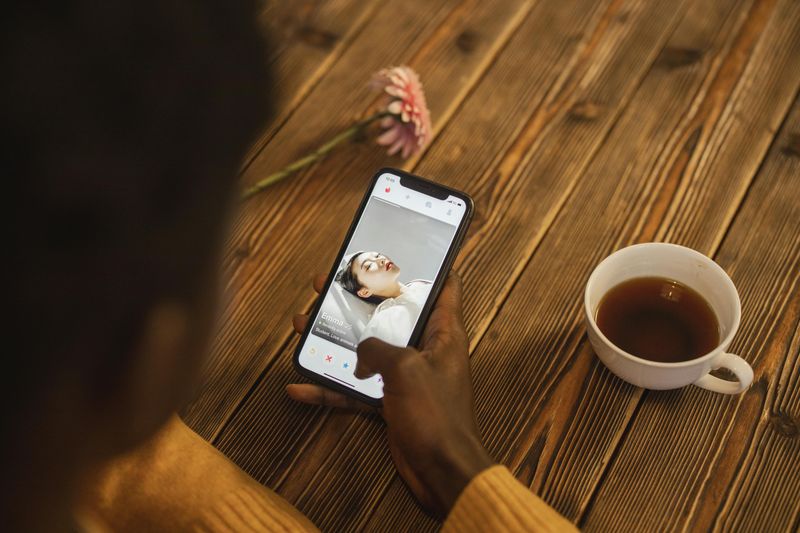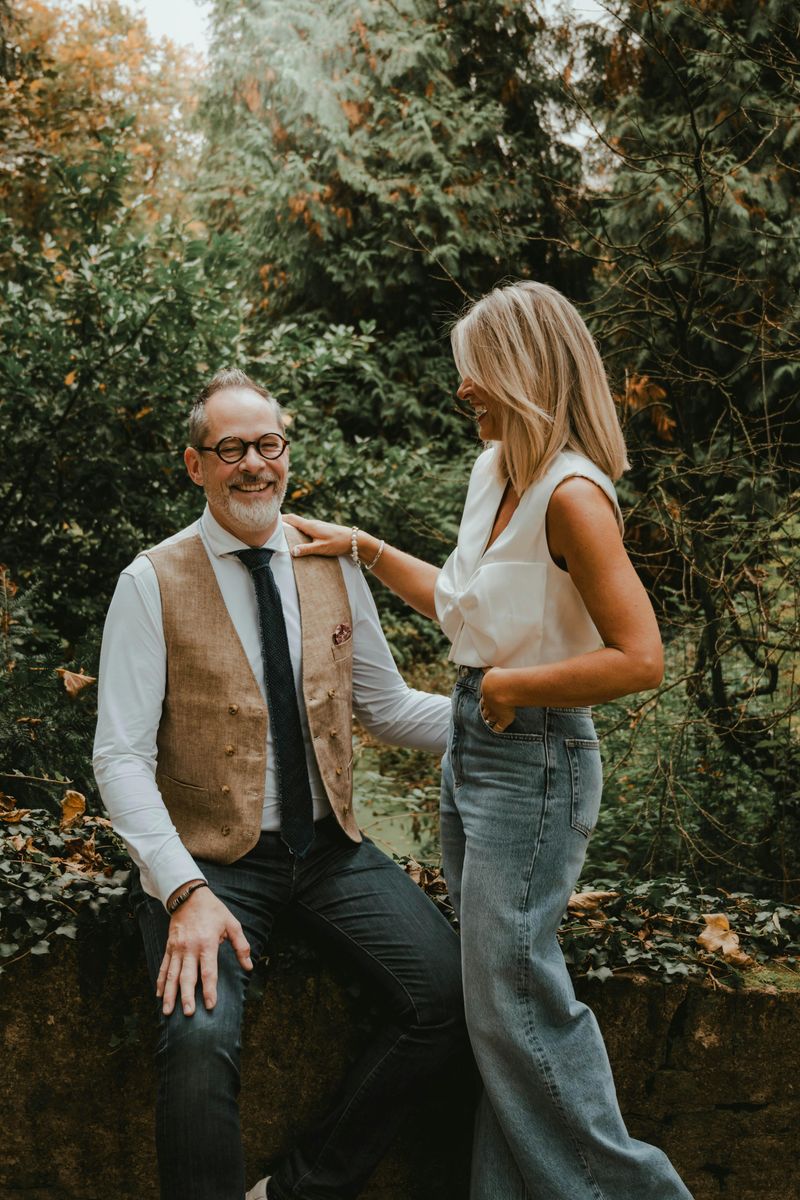Finding love can feel impossible when you believe things that just aren’t true. Many people stay single longer than they need to because they follow outdated rules or listen to bad advice about dating. These myths create unnecessary barriers and make it harder to connect with someone special. Understanding what’s real and what’s fiction can help you find a meaningful relationship much faster.
1. You Must Be Completely Happy Alone Before Dating
People often hear they need to be perfectly content by themselves before entering a relationship. While having your own interests and self-esteem matters, waiting for total happiness is unrealistic. Nobody feels amazing every single day, and relationships can actually help you grow as a person.
Healthy partnerships involve two people who support each other through ups and downs. You don’t need to have everything figured out first. Being ready means you’re open to sharing your life, not that you’ve achieved some perfect state of independence.
Waiting for perfect happiness keeps many wonderful people on the sidelines unnecessarily.
2. The Right Person Will Find You Without Effort
Romantic movies make it seem like love just happens magically without any work. You might think your soulmate will knock on your door one random Tuesday afternoon. Unfortunately, real life doesn’t work that way for most people.
Meeting someone special usually requires putting yourself out there. This means trying dating apps, attending social events, or asking friends for introductions. You can’t win the lottery if you never buy a ticket.
Taking action doesn’t mean you’re desperate—it shows you’re serious about finding a partner. Sitting at home hoping for magic rarely works out well.
3. Playing Hard to Get Makes You More Attractive
Did you know that playing games often backfires completely? Many people think acting disinterested will make someone chase them harder. This strategy might work in movies, but real people usually just move on when they feel rejected.
Being genuine and showing interest when you feel it creates better connections. If someone likes you, they want to know you like them back. Pretending you don’t care can make the other person think you’re actually not interested.
Honest communication builds trust from the beginning. Games create confusion and push away people who could have been great partners.
4. Your First Date Must Be Perfect and Magical
Expecting fireworks and instant chemistry on a first date sets you up for disappointment. Most successful couples say their first meeting was nice but not earth-shattering. Sometimes attraction and connection build gradually over time.
Putting too much pressure on one date makes everyone nervous and awkward. You might dismiss someone wonderful because there weren’t immediate sparks. Real compatibility often reveals itself through multiple conversations and shared experiences.
Give people a fair chance by going on second or third dates before deciding. Some of the best relationships started with underwhelming first impressions that improved dramatically.
5. You Should Never Date Someone From Work or Your Friend Group
Many people avoid dating coworkers or friends because they fear things getting awkward. While there are legitimate concerns, completely ruling out these options limits your dating pool significantly. You spend most of your time at work and with friends, so these are natural places to meet compatible people.
Plenty of happy marriages started at the office or within friend circles. The key is handling things maturely if it doesn’t work out. If you both behave respectfully, a failed romance doesn’t have to ruin professional or social relationships.
Don’t automatically dismiss someone just because of where you met them.
6. Online Dating Is Only for Desperate People
This outdated belief keeps countless singles from trying apps and websites that could help them find love. Online dating is now the most common way couples meet, surpassing introductions from friends or family. Millions of normal, successful people use these platforms every day.
Apps simply expand your options beyond the limited people you encounter naturally. They’re tools, not signs of desperation. You wouldn’t call someone desperate for using a map to find a new restaurant.
Refusing to try online dating because of old stereotypes means missing out on potential matches. Embrace modern technology as a helpful resource.
7. Your Partner Should Complete You and Fix Your Problems
Movies love showing broken people who get saved by romantic love. This creates dangerous expectations that your partner will solve all your issues and make you whole. No other person can or should carry that responsibility.
Relationships work best between two reasonably stable people who enhance each other’s lives. Your partner isn’t a therapist, parent, or magical cure for insecurities. Expecting them to fix you puts unfair pressure on the relationship and usually leads to disappointment.
Work on your own growth while looking for someone who complements your life. Two complete people create a stronger partnership than two halves searching for wholeness.
8. Age Gaps in Relationships Are Always Problematic
Society often judges couples with age differences, assuming the relationship must be unhealthy. While large gaps can present challenges, automatically dismissing someone because they’re older or younger limits your options. What matters most is shared values, respect, and being at similar life stages.
A five or ten-year difference becomes less significant as people get older. Two mature adults can have a wonderful relationship even if they weren’t born in the same decade.
Focus on compatibility and how someone treats you rather than their birth year. Some of the strongest partnerships involve age gaps that initially seemed unusual.
9. If It’s Meant to Be, There Won’t Be Any Problems
Every relationship faces challenges, disagreements, and rough patches—this is completely normal. Believing that true love means constant ease and agreement is incredibly unrealistic. Even the happiest couples argue sometimes and need to work through difficulties.
Problems don’t mean you’re with the wrong person. What matters is how you handle conflicts together. Healthy partners communicate, compromise, and grow stronger through challenges rather than giving up at the first sign of trouble.
Expecting perfection means you’ll keep leaving relationships that could have succeeded with effort. Real love involves choosing to work through problems, not finding someone who never causes any.
10. You’ll Know Immediately When You Meet The One
Hollywood has convinced people they’ll experience love at first sight with their future spouse. While instant attraction happens sometimes, many lasting relationships begin with gradual feelings that develop slowly. Expecting immediate certainty can cause you to overlook great potential partners.
Love often grows through shared experiences, conversations, and time spent together. Someone who seems ordinary at first might become incredibly special as you get to know them better.
Stay open to people who don’t give you immediate butterflies. The strongest relationships frequently surprise people by developing from unexpected places and growing deeper over time.
11. Having a List of Requirements Will Help You Find Someone Perfect
Creating detailed checklists of what you want in a partner seems logical but often backfires. You might require someone who’s exactly six feet tall, loves hiking, and has a specific job. These rigid requirements can cause you to reject wonderful people over minor details.
Compatibility matters more than checking boxes on a list. Someone might not match your imagined ideal, but could still make you incredibly happy. Being too picky about superficial things means missing out on deeper connections.
Focus on core values and how someone treats you rather than arbitrary preferences. Flexibility opens doors to relationships you never expected but desperately needed.
12. You Shouldn’t Have to Change Anything About Yourself for Love
People hear they should never change for anyone, which sounds empowering but isn’t completely accurate. Healthy relationships involve some compromise and growth from both people. Refusing to adjust anything about yourself shows inflexibility, not strength.
There’s a difference between changing who you fundamentally are and making reasonable accommodations. Maybe you learn to communicate better or become more considerate of someone else’s needs. These changes make you a better partner and person.
Staying completely rigid means relationships will struggle. The best partners inspire positive growth while accepting your core personality and values unchanged.












